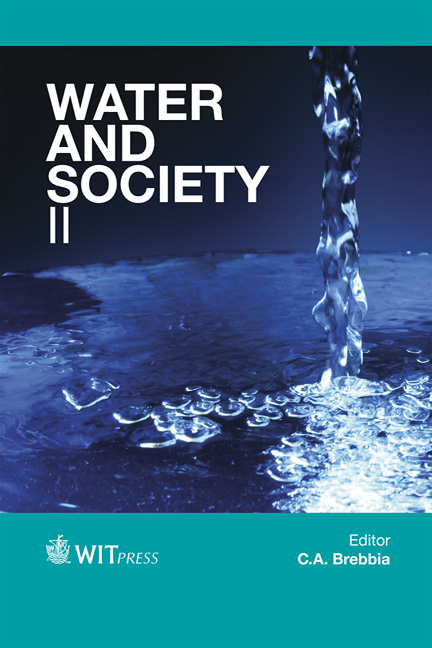Water: A Cause Of Power Politics In South Asia
Price
Free (open access)
Transaction
Volume
178
Pages
9
Page Range
101 - 109
Published
2013
Size
329 kb
Paper DOI
10.2495/WS130091
Copyright
WIT Press
Author(s)
F. Naz
Abstract
Pakistan is naturally gifted with plentiful water resources but water is becoming a diminishing resource due to politics in the water sector both by international and domestic players. In addition, the change in climate has also threatened the world’s water resources including South Asia. In South Asia, Siachin, the second longest glacier of the world has been badly affected by the presence of Indo-Pak military troops and their gun power activities. In the early years of independence, Pakistani agriculture faced a lot of problems owing to the stoppage of water of the Indus River System by India. To overcome these problems the Indus Water Treaty between India and Pakistan was signed with the help of the World Bank in 1960 to share the water of the Indus River System. It was expected that the agreement would put an end to water issues between the two South Asia neighbours – India and Pakistan – forever. However, with the passage of time there have been many constraints and violations of the treaty, causing serious water shortages for the lower riparian. Today it appears as if the wish was unsubstantiated. The present study explores the domains and scope of hydro politics in South Asia. It gives an overview of the profile of the Indus River basin, the Indo-Pak water conflict in the wake of the Indus Water Treaty, and the technical and legal implications of the likely conflict in South Asia. The focal point of the study lies in the growth of trans-boundary environmental cooperation for sustainable hydropower development and in building up such a strategy that may surmount the internal and external security challenges to the state of Pakistan. Keywords: trans-boundary environmental impact assessment, strategic environmental assessment, Inter-governmental Panel on Climate Change, Indo- Gangetic river basin, Upper Indus basin, Gilgit-Baltistan, United Nations Environment Program, International Commission on Large Dams, Permanent Indus Commission
Keywords
trans-boundary environmental impact assessment, strategic environmental assessment, Inter-governmental Panel on Climate Change, Indo- Gangetic river basin, Upper Indus basin, Gilgit-Baltistan, United Nations Environment Program, International Commissio





